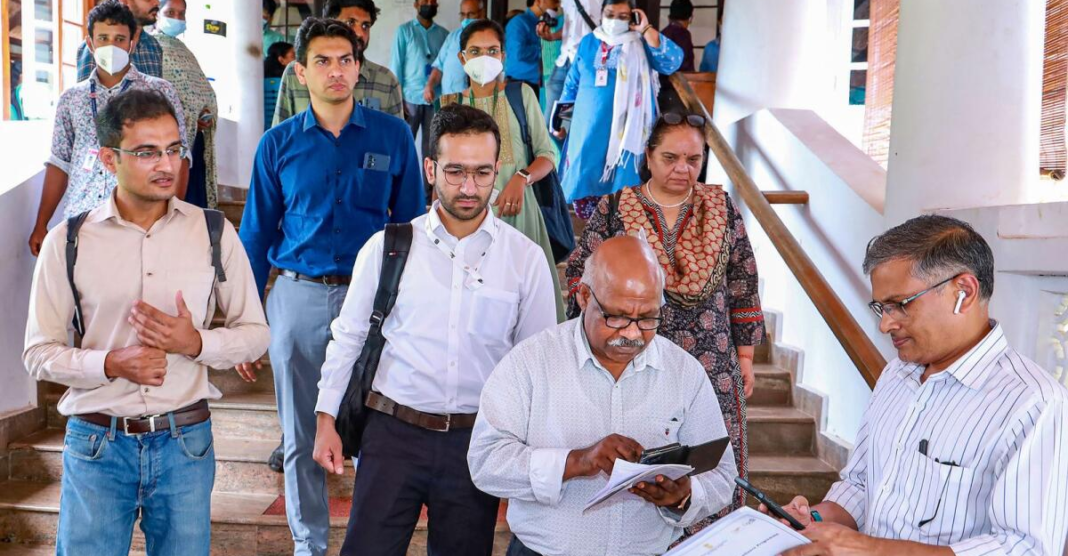Nipah virus experts across Kerala have begun collecting samples from bats and fruits
Nipah virus experts have spread across Kerala to collect fluid samples from bats and fruits. They can help study the virus further. It has already killed two, and three more have tested positive.

Kerala is battling a fourth outbreak of the virus since 2018. There is currently no known vaccine for the virus. It spreads via contact with bodily fluids from bats, pigs, and other people. The virus kills 75% of infected individuals.
Veena George, Kerala’s state minister, states that they are testing the public for the Nipah virus. Experts have also started collecting samples. They are working in forested areas, which could be hotspots for the virus.
Samples of bat urine, half-eaten fruits, and animal droppings were collected. They were from Maruthonkara village, where the first victim lived. It is beside a 300-acre (121-hectare) forest that houses several bat species.
Fruit bats tested positive for the Nipah virus during the 2018 outbreak. George states that the state has increased precautions and that the public is hypervigilant. Seventy-seven people are high-risk.
Around 800 people have tested in Kozhikode, Kerala. Two adults and one child are under observation after testing positive.
Public offices, government buildings, and educational and religious institutes have been closed in nine village districts. Public transportation is not available in the affected areas.
Karnataka and Tamil Nadu have ordered tests for travelers arriving from Kerala. Any individual will be under observation after showing symptoms of influenza.
Nipah virus outbreak
Scientists identified the virus in 1999. Pig farmers in Singapore and Malaysia were infected while working with the animals.
The Nipah virus has sporadic outbreaks. The previous infections occurred due to the consumption of contaminated food.
The first outbreak in Kerala killed 21 of the 23 infected individuals. The 2019 and 2021 outbreaks killed two people.
According to reports, certain regions in Kerala are susceptible to outbreaks due to the felling of trees. It puts wildlife and society in close contact.

